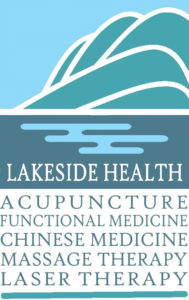What is TMJ?
TMJ (temporomandibular syndrome) refers to pain in the jaw region with possible swelling, limited range of motion, muscle spasms, caraches, grinding of teeth, facial asymmetry, clicking or popping noises, and occasionally, ringing in the ears. Common causes of TMJ pain include blows to the jaw, over-stretching as a result of dental or surgical procedures, arthritis, and excessive grinding or clenching of the teeth. Up to 25 million Americans experience some form of TMJ, with women seemingly at greater risk.
How does Western Medicine treat TMJ?
Western medical treatment of TMJ consists of both dental and medical approaches including anti-inflammatory drugs, a soft diet, hot compresses, and oral splints. Permanent dental corrections and prostheses may also be recommended. Surgical correction is necessary in 5-10% of patients. When TMJ is mostly due to muscular tension, biofeedback and other stress management techniques may be recommended.
What is Chinese Medicine?
Chinese medicine is the oldest continually practiced, literate professional medicine in the world. Practitioners of Chinese medicine use such therapies as acupuncture, moxibustion, cupping, Chinese herbal medicine, acupressure, and Chinese remedial massage.
How does Chinese Medicine work?
Chinese medicine seeks to restore balance to the body. Therefore, the practitioner begins by doing a Chinese medical diagnosis to determine the patient’s individualized pattern of disharmony. He or she will then craft a personalized treatment plan encompassing all aspects of the patient’s life. For TMJ, in particular, acupuncture is usually the main treatment, often supported by a Chinese herbal formula.
Can Acupuncture & Herbal Medicine treat TMJ?
Yes, Chinese herbal medicine and acupuncture most definitely can treat TMJ. Not only can acupuncture typicallly relieve the pain, tension, and discomfort of TMJ within a matter of minutes, your Chinese medical practitioner can help you understand the disease mechanisms that lead to this disorder and what you yourself can do about them. This may mean relaxation and stress reduction, or modifications in one’s diet. The beauty of Chinese medicine is that it takes the whole patient into account and prescribes a treatment plan that brings the entire person back to a sense of vibrant and dynamic balance.
Can I combine Chinese & Western Medicines?
Yes again. The combination of oral splints (worn within the mouth at night during sleep) and acupuncture/Chinese herbal medicine, often is a very effective combination for the treatment of TMJ. In this case, the oral splints help treat the problem mechanically, while the acupuncture and Chinese herbs seek to redress the internal causes for this condition at their roots.
For a personalized Chinese medical pattern diagnosis, more information on Chinese medicine and TMJ, or for professional acupuncture and/or Chinese herbal treatment, see a practitioner at Lakeside Health.


